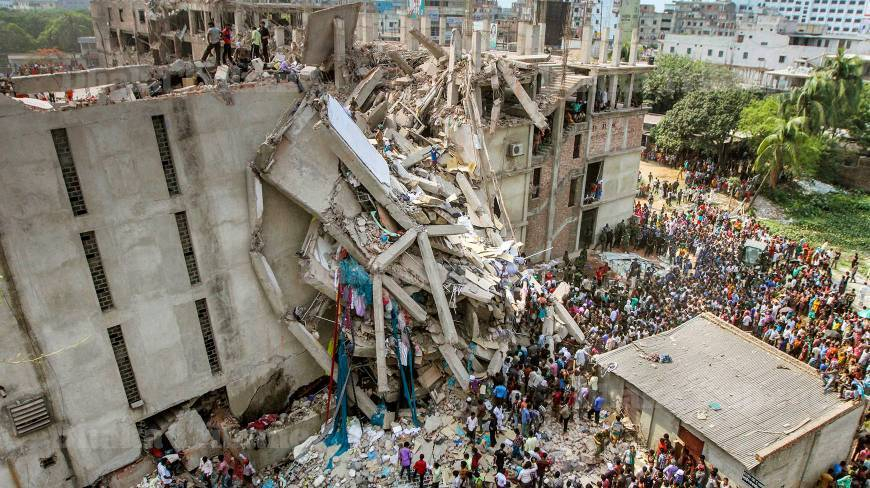
After weeks of feeling personally devastated about the factory collapse of the Dhaka Rana Plaza in Bangladesh; of witnessing the pain of the lives, families and communities lost and shattered (the death toll now exceeds 1100 and is still climbing); of feeling a deep sense of shame that I am part of an industry that seems to design for inhuman working conditions through economic priorities that chase low cost garments above all else; and of feeling building anger that the fashion retail sector has failed to take responsibility for its own role in this; it seems now that we are on the cusp of change. As an industry, our collective disgrace is that this has taken so long to come and so many people have died. And that the normal conversations and taken-for-granted beliefs that guide everyday business decisions in the fashion sector are so skewed, so hopelessly warped and broken, that this situation happened at all.
In an excellent piece by Andrew North for the BBC today, he reports on the retailers and governments now bowing to pressure to change things in the light of Rana Plaza disaster. He names the big brands who have a signed up to a legally-binding code requiring them not just to meet minimum fire and building safety standards but to pay for them, including Sweden’s H&M, the UK’s Primark and Tesco and the Netherlands’ C&A. According to the BBC, other brands have proved unwilling to sign the code, including unnamed British retailers and US brands Gap and Walmart, the latter’s products also being produced in a different supplier factory also in Bangladesh last November where 100 died.
So the wind of change is blowing. And workers must and will experience different conditions, the right to join a union and earn a living wage as they create super cheap clothes for the insatiable Western consumer. But this same Western consumer and the consumer culture he/she perpetuates and is dependent on, must also take responsibility for its part in this horrific disaster. Whether the wind of change can blow hard and long enough to change this culture and for us to recover a more meaningful sense of ourselves and our way of living in the world is unclear. But what we do see with crystal clarity at moments like this is that superficial solutions will do nothing to change the foundational structures of society. And it is in the foundations of a sector geared towards growth that the roots of the Rana Plaza disaster are found.
More information:
Campaigning organisation Labour Behind the Label
Online petition by Avaaz ‘Crushed to Make Our Clothes’
Ethical Fashion Forum’s ‘Call to Action‘

1 Comment
[…] undeniable: how can you possibly hope to improve the efficiency of your operations, know that your supplier factories have safe building structures, guarantee that workers are fairly paid, etc., if you don’t know who is doing what, where, when […]